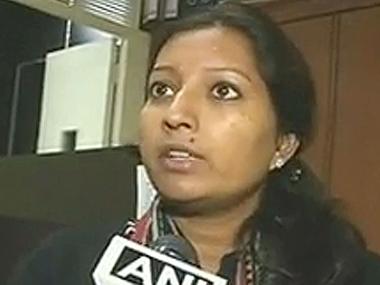The offloading of Greenpeace India employee Priya Pillai from a London-bound flight at the Indira Gandhi International Airport in New Delhi on 11 January looks like an Intelligence Bureau (IB) operation with the immediate objective of preventing her from doing what she set out to do: brief British parliamentarians about the status of tribals’ rights in India on 14 January. The ministries of home and external affairs have washed their hands off the Pillai episode and there is no climb-down from the government while the activist continues to cool her heels in India without even being told on what grounds she was offloaded. There are two mutually contradictory ways of looking at the incident and both views incidentally look compelling and logical at the same time. One is the foreign NGOs versus foreign agents debate. Governments across the globe are coming down heavily on the foreign pressure groups on charges of impeding national development and even threatening national economic security. More and more foreign governments are looking at foreign NGOs as foreign ‘agents’ working against the national interests. [caption id=“attachment_2043933” align=“alignleft” width=“380” class=" “]  Greenpeace activist Priya Pillai. ANI[/caption] The second is that a government must be tolerant and broadminded enough to brook dissent, all the more important when the government happens to be world’s largest democracy. Greenpeace has been a thorn in the eyes of the Indian government for the last eleven years since it started its work in the sub-continent. The UPA government has been cautious about the NGO but never tried to bully it. Former Prime Minister Manmohan Singh had gone on record as saying in context of the Russian-built Kudankulam nuclear power plant in Tamil Nadu that foreign NGOs had an ulterior motive in opposing the power plant. Previous Congress governments at the Centre too had borne the brunt of Narmada Bachao Andolan for decades which gave Medha Patkar international fame. For over a quarter century Patkar took on Congress-led governments at the Centre head on. But the Congress-led governments neither succumbed to such pressure groups nor cracked down on them. All developmental projects continued apace and were duly completed, like Narmada and Kudankulam. However, days after taking over, the Narendra Modi government made it clear that it won’t follow the UPA government’s policies towards foreign NGOs and would be dealing with them sternly. A clear indication of this was given when a week after the Modi government’s inauguration, the Intelligence Bureau came up with a damning report on 3 June, 2014 against Greenpeace and dubbed the international non-governmental organization (NGO) as “a threat to India’s economic security”. The IB report accused Greenpeace of violating foreign funding norms and engaging in political activity. In this context it said Greenpeace was funding NGOs run by Pankaj Singh, Aam Aadmi Party candidate from Sidhi (Madhya Pradesh). On a larger note, the IB report has said foreign NGOs received Rs ten thousand crore (around $1.6 billion at current exchange rates) annually from abroad and the scale and magnitude of the ill-effects of these foreign NGOs is such that it is a setback for the national GDP by a whopping two to three percent. Moreover, a genuine question arises for recent Greenpeace episode. Why should she be washing India’s dirty linen abroad and brief British parliamentarians on the status of tribal people in India? Who are these British MPs and why should they be “briefed” by an international NGO’s Indian employee? Another equally relevant question for Pillai is that while she and her Greenpeace are entitled to have their opinion, isn’t this a paid opinion which degenerates to the level of dangerous lobbying with an adverse impact on India? However, the Modi government could have handled the episode in a better manner. The clumsy manner in which the government handled the Pillai offloading issue, it has shot itself in the foot and stoked a controversy which was unnecessary and avoidable. While it is true that no government is obliged to give reasons why an individual is being denied to embark on an otherwise completely legal travel abroad, what prevents the Modi government from coming up with a declared policy on reining in foreign NGOs? Lastly, one hopes that opposition parties do not try to score brownie points in this context. Opposition parties may not be under any obligation to support the government on this issue but they will do well not to extend their patronage to foreign NGOs without solid evidence in their hands.
The clumsy manner in which the Modi government handled the Greenpeace activist offloading issue, it has shot itself in the foot and stoked a controversy.
Advertisement
End of Article
Written by Rajeev Sharma
Consulting Editor, Firstpost. Strategic analyst. Political commentator. Twitter handle @Kishkindha. see more


)

)
)
)
)
)
)
)
)



